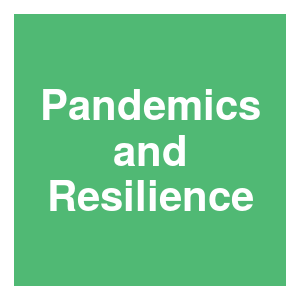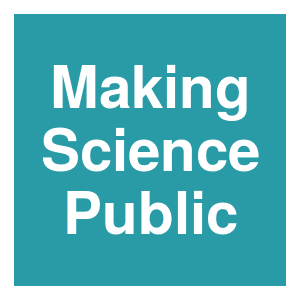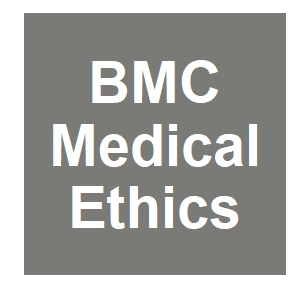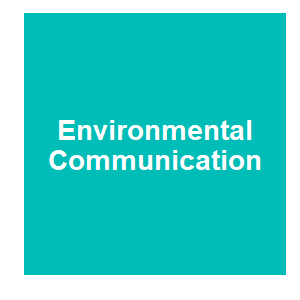
Keywords: communication

|
Gene DrivesD. M. Berube, Pandemics and Resilience, 2023.
A “gene drive” is a version of gene editing—a newer, more precise way to change a DNA (or RNA) sequence; in this case, combining a guide RNA with an enzyme that can make a gene drive takes this to another level, making sure that a new or altered genetic sequence has a ... Keywords: communication, conservation, Gene drive, invasive species, management, Metaphor, policy, public-attitudes, restoration, Synthetic biology, trust |

|
Gene Drives in the U.K., U.S., and Australian Press (2015–2019): How a New Focus on Responsibility Is Shaping Science CommunicationA. Stelmach, B. Nerlich and S. Hartley, Science Communication, 10755470211072245. 2022.
Gene drive is a controversial biotechnology for pest control. Despite a commitment from gene drive researchers to responsibility and the key role of the media in debates about science and technology, little research has been conducted on media reporting of gene drive. We employ ... Keywords: communication, conservation, Gene drive, invasive species, management, Metaphor, policy, public-attitudes, restoration, Synthetic biology, trust |

|
Gene drives and metaphorsB. Nerlich, Making Science Public, 2022.
I have been writing about developments in the biosciences for twenty years. In that time, I have covered a wide variety of topics, such as cloning, genomics, the human genome project, the microbiome project, faecal microbial transplants, synthetic biology, epigenetics, genome ... Keywords: communication, conservation, Gene drive, invasive species, management, Metaphor, policy, public-attitudes, restoration, Synthetic biology, trust |

|
Gene drive communication: exploring experts’ lived experience of metaphor useB. Nerlich and A. Stelmach, New Genetics and Society, 2022.
Metaphors have been crucial in making genetics and genomics public, fromthe code and the book of life to genetic scissors and gene surgery. A newfield is emerging called“gene drive”–a range of controversial technologiesthat can potentially be used for the eradication or ... Keywords: communication, conservation, Gene drive, invasive species, management, Metaphor, policy, public-attitudes, restoration, Synthetic biology, trust |

|
Ugandan stakeholder hopes and concerns about gene drive mosquitoes for malaria control: new directions for gene drive risk governanceS. Hartley, R. D. J. Smith, A. Kokotovich, C. Opesen, T. Habtewold, K. Ledingham, B. Raymond and C. B. Rwabukwali, Malaria Journal, 20:149. 2021.
The African Union’s High-Level Panel on Emerging Technologies identified gene drive mosquitoes as a priority technology for malaria elimination. The first field trials are expected in 5–10 years in Uganda, Mali or Burkina Faso. In preparation, regional and international ... Keywords: communication, conservation, Gene drive, invasive species, management, Metaphor, policy, public-attitudes, restoration, Synthetic biology, trust |

|
Experts’ moral views on gene drive technologies: a qualitative interview studyN. de Graeff, K. R. Jongsma and A. L. Bredenoord, BMC Medical Ethics, 22:25. 2021.
Gene drive technologies (GDTs) promote the rapid spread of a particular genetic element within a population of non-human organisms. Potential applications of GDTs include the control of insect vectors, invasive species and agricultural pests. Whether, and if so, under what ... Keywords: communication, conservation, Gene drive, invasive species, management, Metaphor, policy, public-attitudes, restoration, Synthetic biology, trust |

|
Educating the Public on Genetically Modified MosquitoesBuckner, Eva A., UF - IFAS, 2020.
In May 2020, the U.S. Environmental Protection Agency (EPA) approved Oxitec’s Experimental Use Permit to carry out pilot projects in the Florida Keys. Oxitec is a biotechnology company founded in 2002 out of Oxford University in the United Kingdom. They will be collaborating ... Keywords: communication, conservation, Gene drive, invasive species, management, Metaphor, policy, public-attitudes, restoration, Synthetic biology, trust |

|
Public Opinion Towards Gene Drive as a Pest Control Approach for Biodiversity Conservation and the Association of Underlying WorldviewsE. A. MacDonald, J. Balanovic, E. D. Edwards, W. Abrahamse, B. Frame, A. Greenaway, R. Kannemeyer, N. Kirk, F. Medvecky, T. L. Milfont, J. C. Russell and D. M. Tompkins, Environmental Communication-a Journal of Nature and Culture, 15:1-16. 2020.
Synthetic gene drive approaches are nascent technologies with potential applicability for pest control for conservation purposes. Responsible science mandates that society be engaged in a dialogue over new technology, particularly where there exist global ramifications as with ... Keywords: communication, conservation, Gene drive, invasive species, management, Metaphor, policy, public-attitudes, restoration, Synthetic biology, trust |

|
Metaphor, Trust and Support for Non-native Species ControlP. A. Kohl, S. J. Collins and M. Eichholz, Environmental Communication, 14:672-685. 2020.
This experimental study used a representative sample of U.S. residents (N = 1,042) to test whether the use of the term "invasive" increases support for non-native species control efforts. The term invasive had a small influence on support for two out of three non-native species ... Keywords: communication, conservation, Gene drive, invasive species, management, Metaphor, policy, public-attitudes, restoration, Synthetic biology, trust |

Contact
David O’Brochta
Foundation for the
National Institutes of Health
geneconvenevi@fnih.org
RSS

